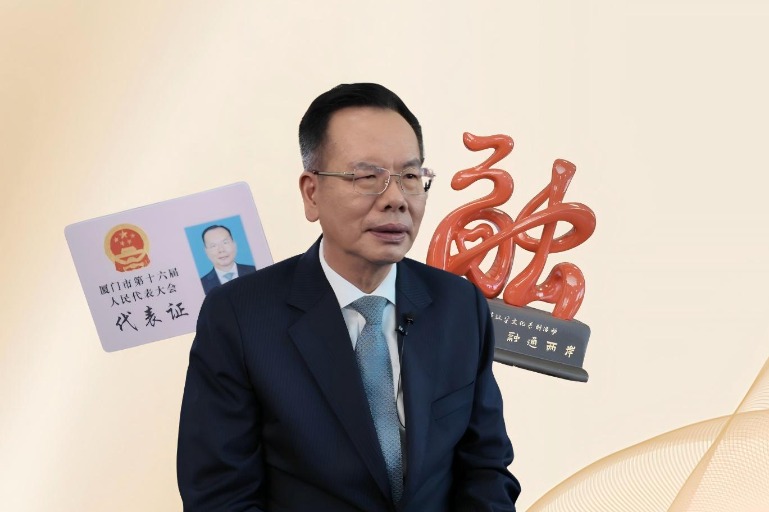Meeting spotlights agricultural cooperation

More agricultural cooperation between the United States and China is on the horizon, with more imports and investment in the sector from China, according to participants in a virtual agriculture roundtable meeting.
Agricultural leaders and industrial executives from the two countries discussed how to work with each other at the opening session of the roundtable on Tuesday.
Hosted by the United States Heartland China Association and the Chinese People's Association for Friendship with Foreign Countries, in cooperation with other Chinese and US partners, the month-long roundtable includes three dialogues on trade and business, agriculture education and between think tanks in the US and China.
Themed "Shared Challenges for a Shared Future: Finding the Way Forward", the series of programs is dedicated to three pioneers who helped transform agriculture: George Washington Carver, Norman Borlaug and Yuan Longping.
Carver was a US agricultural scientist and inventor who promoted alternative crops to cotton and methods to prevent soil depletion.
Yuan is a globally renowned Chinese agricultural scientist known as the "father of hybrid rice". Borlaug was a US agronomist who led initiatives worldwide that contributed to extensive increases in agricultural production known as the "Green Revolution".
Bob Holden, chairman and CEO of the United States Heartland China Association and former governor of Missouri, said the association "strongly believes that agriculture can help accelerate a climate-wise recovery for America as well as act as a stabilizing bedrock for the important US-China bilateral relationship".
"Through this global sharing of ideas, we hope to shed a light on a way forward that would benefit China, the US and the planet."
Call for dialogue
Lin Songtian, president of the Chinese People's Association for Friendship with Foreign Countries, said that agricultural trade between the two countries has dropped dramatically in recent years-roughly 37 percent in 2018 and another 12 percent in 2019-while China's agricultural imports grew 9 percent in both years from other parts of the world.
"The deterioration of the bilateral relationship inevitably forced China to seek more stable supplies of agricultural products elsewhere. The fact has proved that win-win cooperation is the only right choice for the development of both countries. Despite some fundamental differences, dialogue is better than confrontation and conducive for better understanding of each other," Lin said.
Minister Xu Xueyuan from the Chinese embassy in Washington said the fact that China and the US are the largest agriculture importers and exporters, respectively, is helpful for a cooperative relationship.
"China imported $24.5 billion in agricultural products from the US in 2020, a 67 percent jump from the previous year, and accounting for almost 20 percent of China's total imports from the US. As China continues to fulfill phase one of the bilateral trade agreement, the nation is expected to import more agricultural products from the US.
"There is also great potential in exchanges of agricultural technology and personnel training. All these will provide a driving force for the development of the China-US relationship," Xu said.
US Department of Agriculture Deputy Undersecretary Jason Hafemeister said that "the United States and China share a long history of agriculture cooperation that dates back to the beginning of bilateral relations in the 1970s".
He said those relations "remain vitally important, especially as once again China is our top market".
Hafemeister said that the US looks forward to working with China to reach zero emissions in agriculture and is "eager to resume talks with China with a specific focus on harnessing new technologies" to feed the globe in a sustainable way.
Second home
Ni Ping, from the China General Chamber of Commerce in Chicago and president of auto parts company Wanxiang America, said that the US heartland has become a second home to many Chinese companies, and more will come.
"Despite bilateral relations reaching a very low point, two-thirds of CGCC members have said that they will increase their investment in the United States," Ni said.
"These Chinese companies are exporting billions of dollars of US agricultural products to China, investing hundreds of millions of dollars in the US agricultural industry in the Midwest (and) creating a lot of meaningful platforms by which more ideas and information can be shared."
Vice-governors from Hubei and Hebei provinces, Iowa Governor Kim Reynolds, secretaries of state from Alabama and Iowa, and other US officials and executives from companies such as Syngenta and John Deere also joined the opening session and expressed a desire to see more bilateral cooperation.
Sarah Lande, who hosted President Xi Jinping during his visit in 1985 to Muscatine, Iowa, and Kenneth Quinn, president emeritus of the World Food Prize Foundation, spoke about people-to-people exchanges between the US heartland and China.
Today's Top News
- Xi congratulates To Lam on election as general secretary of Vietnam's CPV Central Committee
- Xi says China's high-quality development to provide more opportunities for co-op with Brazil
- Xi holds phone talks with Lula
- TikTok reaches deal for majority US-owned joint venture
- Xi signs order to promulgate regulations on military theory work
- Tech-driven consumption in growth focus






























